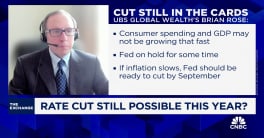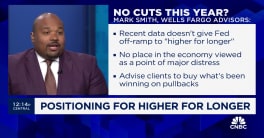April showers bring May flowers and reports of record home sales and skyrocketing housing prices are invariably the moisture needed to bring new real estate agents sprouting out of the ground. It happens in every boom market and usually ends as thousands of the newly licensed real estate agents tear up their business cards and slink back to their old careers.
Selena Maranjian, writing in Motley Fool, a rather irreverent investor newsletter,
noted on Thursday that, in California more than 22,000 persons took the state
real estate exam in April, nearly three times the number in
April 2003. In response the state has had to rent space for six new test centers,
more than doubling the number it already had. �There are 437,000 agents
in California,� Maranjian writes, �enough to form the state�s
eighth largest city.�
So obviously it is happening again.
It brought to mind a letter in Confidential Chat, a person to person column in the Boston Globe (sort of like a blog but with ink) from a young mother saying that she was tired of the hassle of regular employment, would like to spend more time with her kids, and make a lot more money. Therefore, she was thinking of getting her real estate license. What, she asked, did readers of the column, particularly those in real estate, think?
This was 2002 and real estate was getting wild. A lot of us laughed, but a colleague answered. Updated, edited for a national audience and sensitive dispositions, and printed with permission of its author, it is offered as advice to anyone considering such a new career.**
**Note to practicing agents: Feel free to make multiple copies, roll up tightly, and insert gently into the open mouths of the next dozen people who say to you �Oh, you sell real estate. Wow, you must be really raking it in.�
Dear Would-be Real Estate Agent
You asked for the pros and cons of a career in real estate. Here are mine.
PROS of Becoming A Real Estate Agent
- It is easy to enter the field. While real estate licensing requirements
vary from state to state, becoming an agent is never hard. No degrees are
required; most states require formal training which can be managed in as little
as a week-end at minimal cost. The licensing exam is easy and there are usually
multiple opportunities to retest. Most states require some form of continuing
education for re-licensure but this is of little consequence except as yet
another expense. In most states agents need to apprentice under a broker before
they can become one, but that means little in reality.
� - Agents are independent contractors and therefore can determine when and
where they work; decide how they will run their �business;� and
control their income based on energy, ambition, and creativity.
� - Agents see wonderful homes and meet many nice people, some of whom will become friends and repeat customers.
CONS of Becoming A Real Estate Agent
- 1. It is easy to enter the field. Anyone can become an agent and in times like those today, seemingly everyone does. My local market, with about 500 home sales per year has over 200 active agents and an equal number who dust off their licenses when a friend or relative is in the market. You do the math.
- Agents are independent contractors and therefore can determine when and where
they work and how they will run their �business.�
True, but successful agents will confirm that their time is seldom their own. Personal plans are subject to the whims of customers and many are quite self absorbed. I know of agents who have left dinner guests at the table (in one case the Thanksgiving table) because a customer demanded to see a house NOW. They are always clear that they will find another agent willing to oblige if you do not. Your child�s high school graduation or a family vacation will not interfere with some customers� need for instant gratification.Determine their income based on energy, ambition, and creativity.
Except that much of it is luck, connections, and longevity. When I entered the business it was after many years living in the town. I had a list of contacts; my sphere of influence, on which I planned to build my business. The woman assigned as my mentor was already working with four of my contacts, two others sailed through the office waving gaily at me as they made their way to veteran co-workers� desks. My contacts who were not already office customers were either working with the office across the street or years away from buying or selling. Potential customers to be sure, but one has to eat in the interim.
Customer loyalty is another problem. Every agent has a ream of stories about customers who go to an open house, spot a For Sale by Owner sign, or learn that their sister-in-law just got a real estate license. Any of the above is reason enough to abandon an agent who has served them diligently for months, even years. At any given time I am working with ten to 12 customers and know I will be lucky if I actually pluck one sale from this crop. While each will cost me time, money, and lost opportunities, they regard me as a highly disposable resource.
I cannot count the number of freshman agents who have told me �I am going to specialize in listings.� Sure you are dear. Listings are where the control and consequently the money are and the competition is fierce. Many listings go automatically to the agent who last sold the house. Where that isn�t the case, savvy consumers usually call out three or four agents for listing presentations. A new agent, with no local name recognition, no track record, and lacking the moxie and the tricks that come with years in the business, has far less than the statistical 25 to 33 percent chance at getting the listing. A 5% shot would be my guess.
But I do sell houses and then and only then, I get paid. Average real estate commissions vary from town to town, state to state but generally run 4 to 6 percent of the sale price. This seems a princely sum in areas where housing prices are in the high six figures. But take a look at the �split.� A commission is always shared, typically 50/50, between the listing and the selling office. The office keeps as much as 57% of that half share before reimbursing the agent. Top producers might retain 75%, but a high split is earned through past performance and is usually not within the reach of the average rookie. Once obtained, it can be easily lost through one �off� year. Agents who accept referrals from the office manager or other agents pay an additional 25 to 40 percent of their share for that referral. The latest wrinkle is �affinity� programs available to employees of large companies, educational institutions, even Costco members, that offer buyers/sellers a rebate. The buyer/seller doesn�t collect a lot after the program�s sponsors and managers get their cut, but about 35 percent comes right off the top of the agent�s commission.
Still, the sale of a $500,000 house with a 5 percent commission and no referral fee will earn me $6,250. In the best case � and I have enjoyed a few of these � I might have spent less than ten hours with this customer before sealing the deal. There will be an average of 20 hours dealing with home inspectors, the mortgage company, attorneys, appraisers, and so forth before I actually see my check. $208.33 per hour, not a bad deal. In the worst case � and I have had many more of these - I have spent hundreds of hours on a single customer who decided not to buy or was referred by his cousin, minister or boss to the perfect home that another relative, parishioner, or employer was ready to sell. And I earned $0 per hour. I would need about five sales like the best case each year to average $15.00 per hour working full-time. And I work many, many hours more than the full-time equivalent of 2080 per year.
Self employment carries many financial obligations. I work for a major company with a strong advertising program, free continuing education, liberal postage, lots of free marketing materials and supplies. Still I incur a minimum of $8,000 in car, advertising and office expenses, multiple listing, legal, and professional fees (even if I don�t sell a thing). I pay my own health insurance (about $4000 per year), have no retirement plan or 401K match and am responsible for both employee and employer contributions to Social Security and Medicare � over 14 percent of my net income
One of the guys who came to work a year or so after I did has made it big, grossing $1.3 million in commissions last year. He is cutthroat and few in the office speak to him but he is a success story. Some of the agents with 20 years experience do nearly as well. I think my experience is more typical, however. In fact I am sure of it. Since I joined the office six years ago 15 new agents have come and gone, many after giving the business a real honest try.
I do see lots of fabulous houses, many of my customers have become good friends, and I am finally earning a living (just barely) wage. But anyone entering this field must be aware of the financial, emotional, and lifestyle costs. Real estate is not, even in the best of times, a money machine.
Good luck
A Massachusetts Agent







